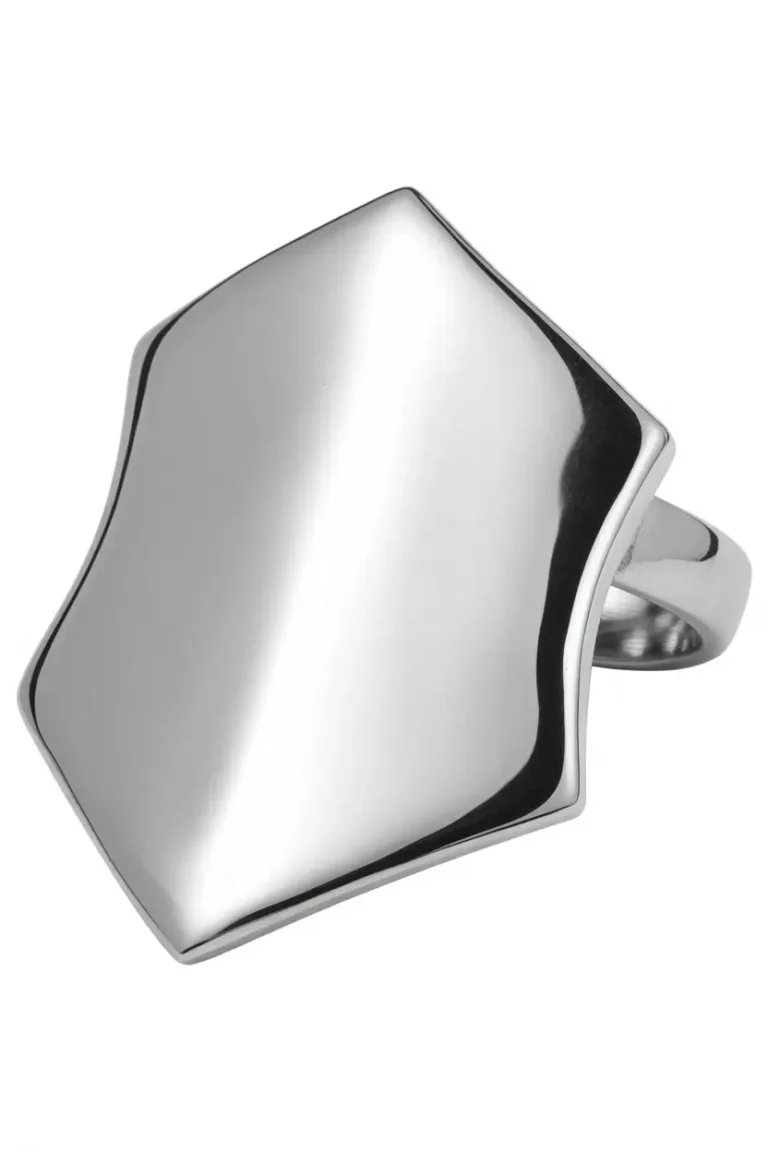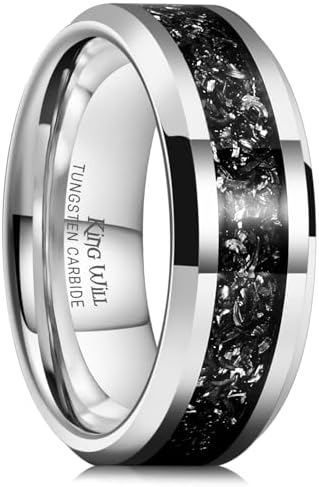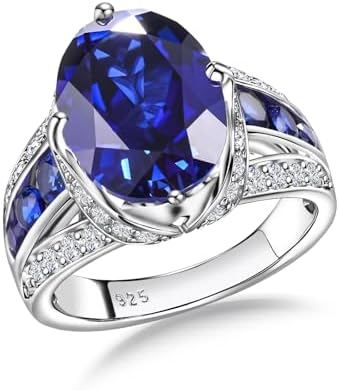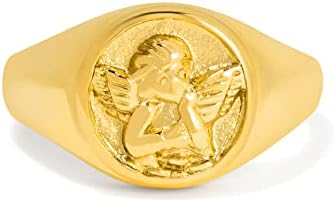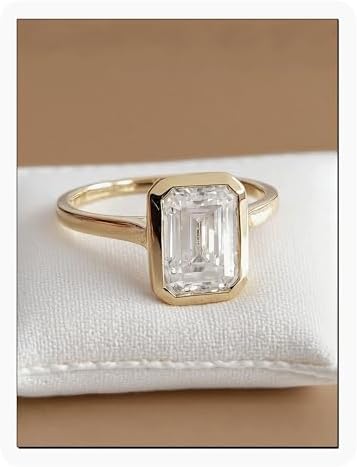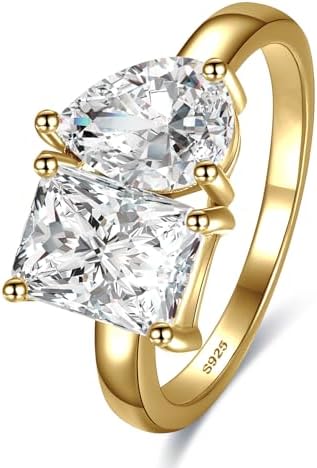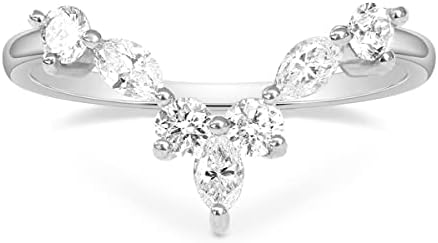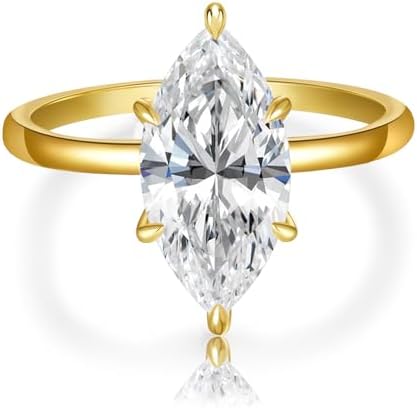Rules around wedding rings are loosening, and that is a beautiful thing. Couples are choosing pieces that tell a story, carry substance, and feel good on the hand from day one to decades out. If the classic solitaire or plain band feels polite but not personal, consider unique wedding rings that truly reflect your story and style.
The ideas below push past tradition without tipping into gimmickry. Each one solves for daily wear, durability, and meaning, while still giving you something people will remember.
Why break the rules at all?
A wedding ring lives on your hand through grocery runs and vacations, big meetings and quiet Sundays. It deserves to reflect your style now, and the person you are growing into.
There is also practical logic behind choosing something a bit different. Unique designs can lower snag risks, protect stones, and meet specific lifestyle needs. They can even stretch a budget further by putting money where it matters most, whether that is craftsmanship, ethical sourcing, or special materials.
Some traditions still make a lot of sense. Others can shift to match your life.
1. The asymmetrical shield
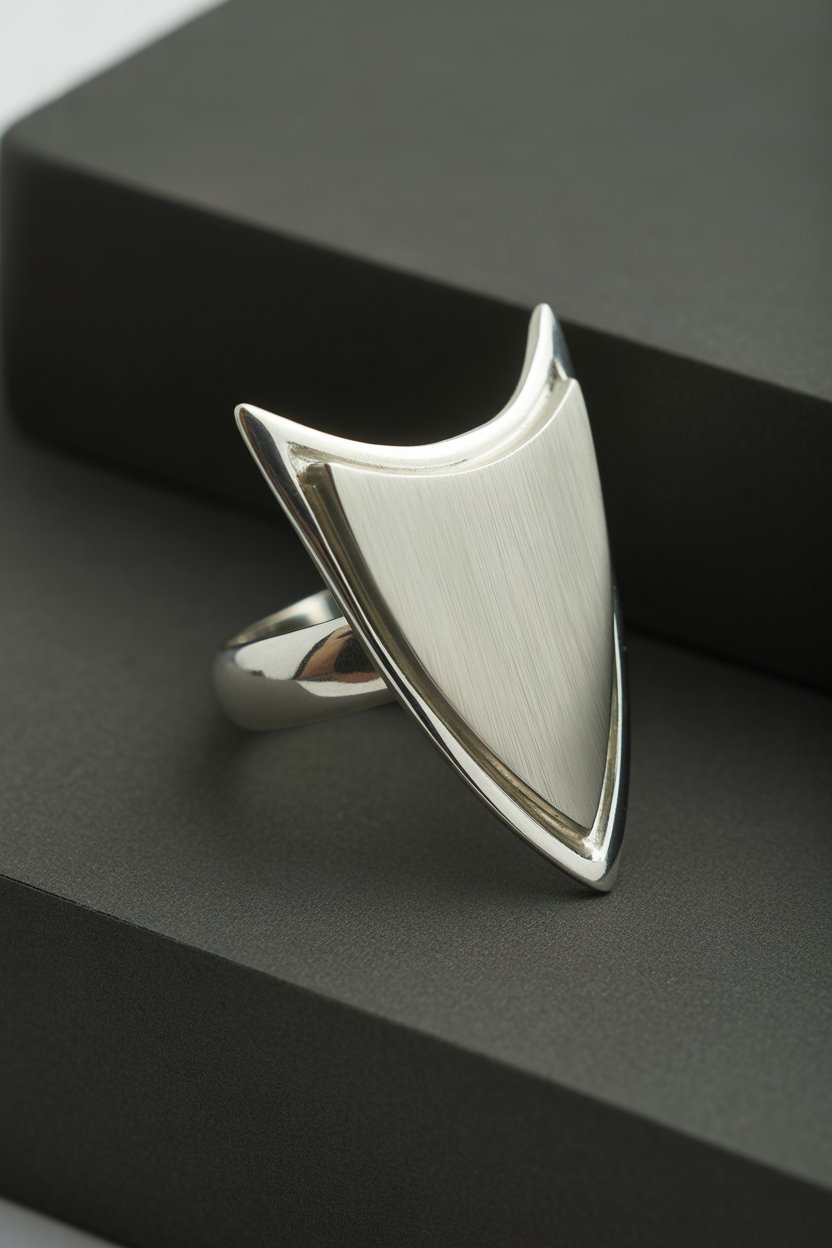
Picture a shield or hexagon-cut diamond, set east to west, with a low profile and an asymmetric arch of tiny salt-and-pepper stones on one side. The band tapers toward the underside for comfort. The entire piece reads modern, graphic, and still refined enough to wear every day.
What makes it rule-breaking
- The center stone breaks from round or oval, moving to shield, kite, hexagon, or coffin cuts
- An east-west orientation changes the visual rhythm and emphasizes finger length
- A halo that hugs only one side, or a scattering of stones, drops the symmetry you see in traditional halos
Why it works
- Salt-and-pepper diamonds bring natural inclusions that look like storm clouds, galaxy dust, or fog, turning imperfections into texture and character
- A bezel or semi-bezel around the stone reduces snagging and protects the edges
- The low height sits securely under gloves or in active work
Details to consider
- Black rhodium over white gold gives a smoky effect but will wear over time, revealing lighter metal beneath. Plan on periodic replating if you want to maintain the dark finish
- Shield and hexagon diamonds have fewer standardized cut measurements. Work with a jeweler who supplies high-resolution videos and exact dimensions before setting
- For a lighter palette, swap the dark accents for icy baguettes or colorless brilliant cuts
Who loves it
- Anyone drawn to architectural lines, art deco references, and rings that photograph beautifully without feeling delicate
Budget notes
- Salt-and-pepper diamonds are often more approachable than colorless stones of similar size
- Expect higher labor costs for custom bezels, especially around unusual silhouettes
2. The meteorite mosaic
This style pairs stabilized meteorite inlay with mokume gane or Damascus steel for a true material conversation. Imagine a muted gray field with Widmanstätten lines from actual iron-nickel meteorite, framed by a warm mokume gane woodgrain pattern in layers of gold, silver, and copper.
What makes it rule-breaking
- It draws from the sky and the forge, not a traditional gemstone center
- The surface becomes the focal point, with pattern and texture doing the work of sparkle
Why it works
- Meteorite’s crystalline patterns are natural and unrepeatable
- Mokume gane brings movement, like wood or water, created by fusing and twisting layers of metal
- These materials age with character, developing a soft patina rather than losing polish
Details to consider
- Meteorite is iron-nickel. If you have a nickel allergy, request stainless steel barrier layers or select low-nickel alternatives
- Sealants can help with corrosion, and a quick oil rub now and then keeps meteorite looking rich rather than chalky
- Mokume with copper layers will patina. If you prefer less color shift, choose mixes heavy on white, yellow, and rose gold
Who loves it
- Minimalists who still want interest, engineers and artists in equal measure, and anyone who likes the idea of wearing a slice of space
Budget notes
- Meteorite segments vary in cost based on provenance and pattern visibility
- Mokume gane is labor heavy. Hand-made billets cost more but deliver depth machine-milled patterns cannot match
3. The color-shift sapphire halo
Classic halos rely on perfect uniformity. This version composes a halo from mixed cuts and sizes, wrapped around a center that changes color by the hour. Think parti sapphire with bands of teal and golden green, or a true color-change alexandrite that moves from bluish to purply-red under warm light.
What makes it rule-breaking
- The halo is intentionally mismatched, using marquise, round, and baguette accents set at playful angles
- The center stone is not a diamond, yet it is proper for everyday wear
Why it works
- Sapphires sit at 9 on the Mohs scale, second only to diamonds and moissanite for hardness. Alexandrite rates about 8.5, durable with care
- The mixed halo creates light play from every angle, even in low light
- Recycled platinum or 18k gold provides a cool, stable frame, resisting bending and daily wear
Details to consider
- Color-change gems carry premiums, and honest grading matters. Ask for daylight and incandescent videos, and request lab reports from reputable labs
- A protective bezel around the center, combined with prong-set halo stones, balances durability and sparkle
- Choose a low to medium profile to keep snag risks down when the halo mixes pointy shapes
Who loves it
- Color enthusiasts, gem nerds, nontraditional couples who want everyday sparkle with a twist
Budget notes
- Parti sapphires can be less expensive than clean, single-color stones of the same size
- Alexandrite commands higher prices. If you love the effect but not the cost, consider color-change sapphire or certain spinels with rare chameleon effects
4. The modular stack
Instead of one ring, build a set that shifts with your day. Think of three to five slender bands that interlock around a simple center or look complete on their own. When worn together, they create a hidden motif, like a sunburst, wave crest, or eclipse.
What makes it rule-breaking
- The wedding band is not just a companion to an engagement ring, it is a modular system
- Mixed metals allow personal pacing. Start with one band in yellow gold, add white gold next year, then a rose gold chevron for an anniversary
Why it works
- Thin bands with precise negative space look delicate, yet the sum wears like a solid piece
- You can rotate components in for travel, gym days, or formal events
- Rings can be added across the years, building story and symbolism
Details to consider
- Precision matters. Ask the maker to build the whole set together to prevent gaps or rubbing
- If you plan to add pieces later, get CAD files or at least exact measurements so future bands align perfectly
- Keep profiles low. Tall stacks look dramatic but can knock into things more easily
Who loves it
- People who enjoy variety, minimalists with a plan, and couples who want to mark milestones with unique wedding rings featuring future bands rather than more stones in one piece
Budget notes
- Modular sets spread cost over time
- Thin bands use less metal, but hand engraving, milgrain, or custom shapes add labor
5. The heirloom remix signet
A signet ring for a wedding band reads bold, personal, and timeless. Now imagine a softened oval top with hand engraving of a crest or meaningful symbol, a touch of enamel in your favorite color, and a few flush-set birthstones scattered like stars. To ground it in family history, melt heirloom gold for the body.
What makes it rule-breaking
- The ring faces up as a signet, not a band, while still reading clean and gender-inclusive
- It swaps sparkle for engraving depth and color accents, and it pulls history forward instead of chasing novelty
Why it works
- Signets present plenty of metal thickness, making them resilient and easy to refinish over time
- Flush-set stones sit below the surface, safer for active hands
- Enamel adds a saturated pop, and it can be repaired if needed years down the line
Details to consider
- If you melt old gold, request an assay or refine and alloy to a known karat for structural integrity
- Ask for crisp, deep engraving cut by hand or by a master engraver using a machine, then finished by hand for sharp edges
- Enamel prefers mindful wear. Remove the ring for heavy impact sports or direct heat
Who loves it
- Sentimental minimalists, designers, and anyone who wants their ring to read like a signet seal rather than a traditional band
Budget notes
- Using your own metal can yield savings, though labor is still significant
- Hand engraving by a specialist is an investment, and worth every cent when you see the line work
Quick comparison at a glance
| Style | Standout features | Typical materials | Approx price range (USD) | Care level | Everyday wear rating | Resize friendly |
|---|---|---|---|---|---|---|
| Asymmetrical shield | East-west shield or hexagon, asymmetric halo | Salt-and-pepper diamond, 18k gold or platinum | 2,500 to 9,000 | Moderate, black rhodium replating if used | High | Yes, within 1 to 2 sizes |
| Meteorite mosaic | Meteorite inlay, mokume or Damascus frame | Meteorite, mokume gane, gold edges | 1,200 to 6,500 | Moderate, oil rubs and sealant checks | High | Often limited, depends on construction |
| Color-shift sapphire halo | Mixed-cut halo, color-change center | Parti sapphire or alexandrite, platinum or gold | 3,500 to 15,000+ | Moderate to high, stone reports and checks | High | Yes, within 1 to 2 sizes |
| Modular stack | Interlocking bands, mixed metals, evolving set | Multiple 14k or 18k gold bands, diamonds optional | 1,000 to 7,500 across pieces | Low to moderate | Very high | Yes, most bands are simple to size |
| Heirloom remix signet | Hand engraving, enamel, flush-set gems | Recycled or heirloom gold, enamel, small stones | 1,800 to 8,000 | Moderate, enamel care | Very high | Yes, within reason |
Note on pricing: labor intensity, stone rarity, metal choice, and brand all move the needle.
Sourcing smart and staying practical
Rings should be beautiful, but they also have to survive a keyboard, grocery carts, and the occasional door frame tap. Keep these realities in mind.
- Metals: 18k gold is rich in color and still durable. 14k is tougher and more scratch resistant. Platinum resists bending and holds stones securely, though it shows a soft patina over time.
- Finishes: Matte, brushed, and sand textures look incredible on day one. Expect them to polish in high-contact areas, which creates a lived-in look. You can always reapply texture.
- Stones: Diamonds and moissanite lead for hardness. Sapphires and rubies follow close behind. If you love something softer, like emerald or opal, protect it with a bezel and keep it for gentler wear.
- Ethics: Ask about recycled metals, lab-grown stones, and traceable origin. Plenty of modern studios can provide origin reports or use 100 percent recycled gold on request.
- Profiles: Low and medium-height settings are kinder in daily life. Consider bezels or semi-bezels if you work with your hands or wear gloves.
- Lifetime service: Prioritize makers who offer free prong checks, stone tightening, and finish refreshes for at least the first year.
Commissioning a custom ring, step by step
Custom is not only for luxury budgets. Many small studios thrive on one-of-a-kind work and will guide you through with clarity.
- Define the must-haves
- Metal color, comfort-fit band or flat, low profile or raised
- Stone type, size, and shape if applicable
- Lifestyle constraints, like glove use or gym lifting
- Build a visual brief
- Save 5 to 10 reference images that capture mood, not exact copies
- Sketch how you want the ring to sit from the side, not just top down
- Set a real budget
- Share a firm range. A good jeweler will help you allocate it between materials and labor
- Approve the plan
- Many shops offer CAD renders or hand sketches. Ask for top, side, and three-quarter views so you understand height and balance
- Preview the form
- Wax or resin models help with scale. If that is not possible, request a silver prototype for fit, then the final in gold or platinum
- Timeline and payments
- Expect 4 to 10 weeks depending on complexity and the studio’s queue
- Deposits are standard. Final payment lands before shipping or pick-up
- Hallmarks and documentation
- Ensure karat stamps, maker marks, stone reports, and appraisals are included for insurance
Care that keeps your ring happy
- Give your ring a gentle bath weekly with warm water, a drop of mild dish soap, and a soft toothbrush. Rinse and pat dry.
- Schedule a check-up twice a year for prongs, bezels, and stone security.
- Remove rings for heavy yard work, weights, and chemicals like bleach.
- Keep meteorite oiled lightly if unsealed. Ask your jeweler for the right oil and frequency.
- Replate rhodium every 12 to 24 months if you prefer a bright white or blackened finish.
- Store modular stacks flat and together to avoid tiny misalignments over time.
Questions to ask a jeweler
- What is the total height from finger to top of the tallest point?
- How thick is the band at the palm side where wear is highest?
- Can this ring be resized, and by how much, without compromising structure?
- What warranty or service schedule do you offer?
- Do you work with recycled metals and traceable stones?
- Does the design include any sharp points that could catch on clothing, and how are they protected?
- If we are using heirloom metal, how will you control karat and hardness?
Myths that deserve retirement
- Unique means fragile. A smart bezel, thicker band, and low profile often make unique wedding rings tougher than a traditional high-prong solitaire.
- Only diamonds belong in wedding rings. Sapphires, spinels, and moissanite wear beautifully. Even softer stones can work with the right setting and mindful habits.
- Mixed metals look messy. Purposeful repetition, like matching bezels or consistent edges across colors, makes mixed metals read clean and intentional.
- You cannot resize inlays or mokume. Many can be adjusted by a skilled shop using inserts or careful stretches. Ask before assuming no.
- Custom work is always slow and pricey. Clear specs and decisive approvals keep timelines lean and costs focused.
Budget, value, and where to spend
You do not need to overspend to build something remarkable. Spend where it shows, and where it protects the ring for the long term.
- Labor beats carat weight. A beautifully made setting around a modest stone looks elevated and wears better than a big stone in a flimsy basket.
- Choose the right metal for how you live. Platinum for stone security, 14k for toughness, 18k for color and easy refinishing.
- Put money into profile and comfort. A ring that sits right on the hand gets worn, not tucked away.
- Document everything. Appraisals and lab reports support insurance and future upgrades.
- Plan for maintenance. A small yearly service budget keeps a ring fresh for decades.
A few sourcing tips for special materials
- Meteorite: Ask for Gibeon or Muonionalusta origins, stabilization details, and care instructions. Evaluate pattern visibility in person or via video.
- Mokume gane: Look for real layered billets, not printed textures. Ask about the metal mix and how it is sealed or etched.
- Alexandrite: Insist on lab reports. Request side-by-side daylight and incandescent videos to validate the color change.
- Salt-and-pepper diamonds: Clarify whether the stone is treated. Untreated inclusions should be stable and only add character, not weakness.
- Enamel: Understand the type used, hard vs soft, and repair options if it chips years down the line.
Fit and comfort that lasts
Comfort-fit interiors reduce pressure during swelling or heat. Slightly rounded edges prevent digging. For wider bands, go up a quarter to a half size to accommodate the larger surface area on the finger. If you live in a place with big seasonal shifts, ask for a sizing assistant like spring inserts or a small sizing bar, especially for signets and heavy pieces.
Bringing it all together
The best rule to keep is the one that centers you. Pick materials that match your taste and lifestyle, commit to a maker who listens, and let your ring carry the details that feel like yours alone.
That way, every time you glance down, you get a small rush of recognition.

